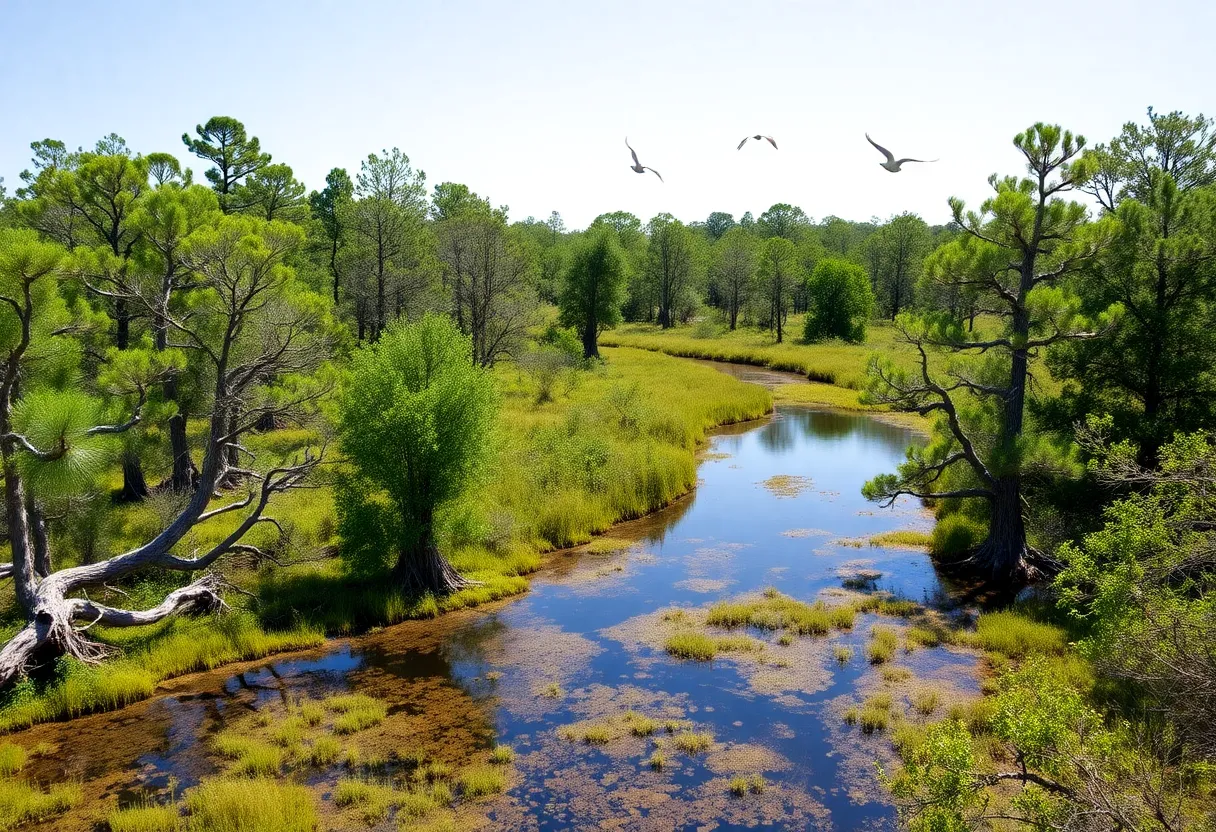News Summary
Public lands across the Southeast United States, covering 39 million acres, are increasingly threatened by potential privatization. Advocates express deep emotional connections to these areas, fearing reduced access for future generations and the loss of vital ecosystems. Concerns center around funding cuts and corporate exploitation, highlighting a collective anxiety regarding stewardship and governance. The dedication to preserving these lands remains strong as stakeholders call for action to protect these natural treasures for ecological stability and community well-being.
Asheville, N.C. – Public Lands Facing the Threat of Privatization
Public lands in the Southeast United States, encompassing 39 million acres of diverse ecosystems, are increasingly under threat from potential privatization. Advocates for these shared national treasures express deep emotional connections to these areas while also voicing fears about losing access for future generations.
The Southeast’s public lands, featuring environments such as cranberry glades, cypress swamps, and rich biodiversity, serve as critical shared spaces for recreation, healing, and connection to nature. Interviews with multiple stakeholders highlight a collective anxiety regarding the future of these lands.
A prominent concern is that privatization will limit access to public lands, thereby reducing opportunities for the public to engage with nature. Environmental advocates emphasize that the current political climate raises fears of funding cuts and corporate exploitation that might undermine vital protections for these spaces.
Individuals from varying backgrounds weighed in on their feelings about public lands. Many articulated a shared belief that these lands represent more than just recreational opportunities. Some view them as essential for ecological stability, offering habitats for countless species and maintaining vital ecosystems. Others emphasized the role of public lands in promoting individual well-being and community connection.
Emotional Connections to Nature
Visitors to public lands recounted their personal experiences, contextualizing their fears through emotional narratives. For example, one environmental sciences student from Florence, S.C., expressed that diversity in nature is fundamental, fearing that privatization of public lands might hinder future access for emerging generations to explore and value these environments.
A trail maintainer from Flag Pond, Tenn., voiced concerns about humanity’s impact on these natural settings, indicating that alterations could lead to significant environmental losses. Others echoed these sentiments, viewing public lands as sanctuaries offering calm and tranquility amid societal chaos and modern pressures.
Concerns Over Governance and Management
The potential mismanagement of public lands looms large in the minds of several advocates. A conservation researcher from Athens, Ga., articulated fears regarding ineffective government stewardship in light of intensifying societal pressures. Concerns were also raised about corporate interests and real estate development potentially harming wildlife management and the ecological significance of these lands.
A retired forester from Pittman Center, Tenn., noted the historical significance of public lands as a time when natural resources were not exploited, emphasizing a deep unease regarding contemporary greed-driven motivations threatening these priceless resources. Several participants referred to the public lands’ role in preserving biodiversity and providing recreational access, underscoring their intrinsic value to both nature and society.
Hope for the Future
Despite these concerns, the dedication to preserving public lands remains fierce. Participants expressed not only apprehension but also a strong desire to preserve these spaces for future generations. They see public lands as vital for both ecological and spiritual healing—critical areas that should be protected from profit-driven interests.
In summary, the emotional connections and fears regarding public lands in the Southeastern United States underscore a collective call for action and preservation amid threats of privatization. Many stakeholders hope to secure fine-tuned protections that will uphold the legacy of these areas, ensuring they remain a sanctuary for both nature and humanity.
Deeper Dive: News & Info About This Topic
HERE Resources
Florence Hosts Inaugural Sounds of the Pee Dee Event
Major Legal Victory Against Indiscriminate Immigration Sweeps
Supreme Court Examines Majority-Black Districts in Louisiana
Kamala Harris Discusses Trump’s Presidency and Future Aspirations
MUSC Named South Carolina’s Top Hospital for 2025
Treasury Secretary’s Comments Fuel Social Security Debate
Kamala Harris Bows Out of California Governor Race
LaNorris Sellers Named to 2025 Preseason Maxwell Award Watchlist
Chavez-Deremer and Fry Address Economic Development in SC
Duke Energy to Sell Piedmont Natural Gas Tennessee Operations
Additional Resources
- Blue Ridge Outdoors: Keep Public Lands in Public Hands
- Kansas Outdoors: Where to Hunt in Kansas Public Lands
- Newsweek: Map Shows Where 250 Million Acres of Public Land Being Sold Off
- Salt Lake Tribune: Voices Fight Utah’s Public Lands
- Clarion Ledger: What Hunters Need to Know About the Mississippi Deer Season 2024-25
- Wikipedia: Public Land
- Google Search: Public Lands Privatization
- Google Scholar: Public Land Conservation
- Encyclopedia Britannica: Public Land
- Google News: Public Lands

Author: STAFF HERE FLORENCE WRITER
The FLORENCE STAFF WRITER represents the experienced team at HEREFlorence.com, your go-to source for actionable local news and information in Florence, Florence County, and beyond. Specializing in "news you can use," we cover essential topics like product reviews for personal and business needs, local business directories, politics, real estate trends, neighborhood insights, and state news affecting the area—with deep expertise drawn from years of dedicated reporting and strong community input, including local press releases and business updates. We deliver top reporting on high-value events such as the Florence Festival of Lights, Pee Dee Pride, and agricultural expos at the Florence Center. Our coverage extends to key organizations like the Florence Regional Chamber of Commerce and the Pee Dee Area Council of Governments, plus leading businesses in healthcare and retail that power the local economy such as McLeod Health and Pee Dee Electric Cooperative. As part of the broader HERE network, including HERECharleston.com, HEREColumbia.com, HEREGreenville.com, and HEREHiltonHead.com, we provide comprehensive, credible insights into South Carolina's dynamic landscape.





